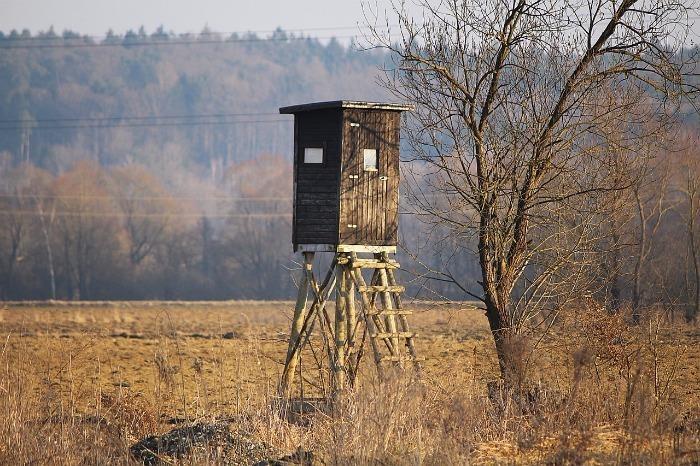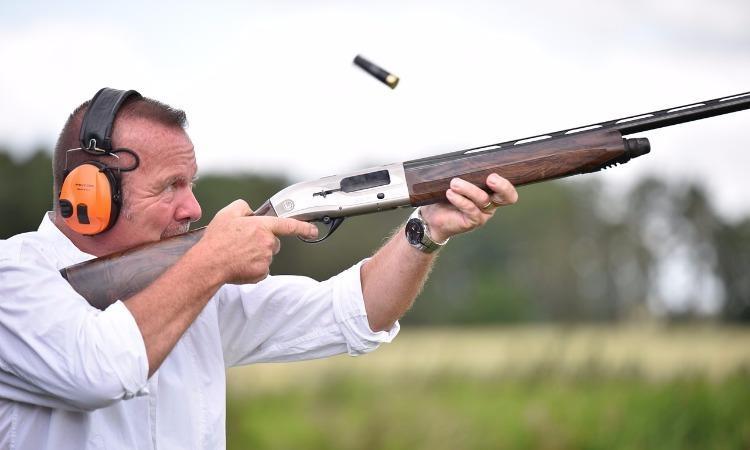Hunting is a unique skill, that can be a challenge to learn if you didn't grow up in the lifestyle. For the vast majority of people, this is something that they learned as a child how to be a hunter while tagging along with their father and grandfather ... eventually graduating to the point where they were given their first gun and taught how to shoot. For the rest of us though, hunting is a bit of a foreign experience. It doesn't have to be that way though. Even adults who never learned how can become successful hunters later in life with a bit of patience, practice, and desire to learn.
Anyone who learned how to ride a bike has likely crashed at least once or twice. When you are learning how to be a hunter, this same concept applies for hunting. When you're starting out, you are guaranteed to crash ... or at least miss a few shots and missed opportunities to harvest your prey. Hunting is a sport/hobby that cannot be duplicated. The adrenaline rush of being alone in the hills, with a clueless wild animal that it is yards away from you, is pretty surreal. A lot of people don’t understand that unlike learning to ride a bike, hunting is easy to do but impossible to master. Anyone can deck themselves out in the latest and greatest camouflage gear and wander aimlessly around the hills looking for a deer while holding a rifle. But to successfully harvest a deer, it takes three key components: knowledge, skill, and luck.
Key Components to Successful Hunting
Knowledge
Now when I say knowledge, I am not pertaining to anything sort of a college degree. This sport never has a graduation day. And any real hunter will let you know that it is impossible to obtain a diploma. To try to earn your education, you have two methods of learning.
1) Research other people’s failures, which could be from books to podcasts or even hunting videos.
2) The other method is experience. It is impossible to learn more from anyone else than it is to learn from yourself on a botched stalk or a misplaced shot because you rushed it.
Those failures will surely replay over and over in your head for years to come. So the next time you’ll be placed in a similar scenario, you will use the experience that you have learned the hard way and strategize. Like most professions out there, not many books or how-to videos can help you more than an “on the job training.”
Skill
Skill is similar to knowledge in the sense that you learn from your mistakes and use them to grow. However, skill can be acquired in other ways than real lessons from the field. For example, you could practice shooting your bow or gun, you can also run or jog to get into shape for a hunt. Anything that you can do to make yourself better during crunch time is considered a skill.
Luck
The last component is luck. As you practice how to be a hunter, you are sure to need plenty of this. Unfortunately, everyone knows what luck is and how it works but no one knows how to get more of it.
Luck is having the animal do what you need it to do before you take a shot. Luck is putting you in the right spot at the right time. There is nothing we can do to obtain more luck. The only thing we can do is get out on the field as much as possible to try to have that luck fall upon us. My Taste of Luck
During elk and deer hunts here in Arizona, I know a lot of guys will get up early in the morning and track for a few hours of prime time, and then head back to camp during the hot part of the day. I hunt harder during this time hoping that lady luck smiles down on me and puts me in the right place. The guys at camp have close to no chance of harvesting an animal during this time. But because I am giving myself opportunities, I have been lucky and able to capitalize on several hunts during the hottest parts of the day.

How to Start Hunting?
So how does one get these three components to come together and learn how to be a hunter? Where do you begin if you are new to hunting or want to get into the sport?
Animal
One of the first steps while learning how to be a hunter isyou need to decide what type of animal you would like to hunt. Do you only want to hunt deer? Or would you be okay with shooting pretty much anything from rodents to big game? Once you know what type of animal you like to go after, it is best to format your mindset solely towards that species. Hunting is such a broad sport/hobby that it seems overwhelming to say “I want to hunt everything I can.”
Rules & Regulations
Once you know what animal you are going to pursue, you must find out the rules and regulations depending on the animal and area that you plan to hunt on. In most western states, you are required to buy a big game lottery ticket and pray that your name gets picked to receive a tag for harvesting just one animal of that specie per year. In other states, you can just go and buy a tag and license, and shoot several of that particular specie in the same year. And some areas do not allow hunting at all.
The rules and regulations of your state will provide you with this information. Besides, if you break the law, ignorance can’t save you.
Gear
Now that you know what animal to pursue, the state rules for that specie, and the weapon you will be using, it is time to dive into the gear aspect of hunting. Of course, buying camouflage clothing is highly recommended. And there is a chance you will have to purchase blaze orange clothing to cover a certain percentage of your body, although this is dependent upon your state's laws. But for the rest of the gear is up to you. Do you need a GPS, a pair of binoculars, or do you need radios? Understandably, our ancestors didn’t use these gizmos and gadgets when they hunted for meat to feed their families. They also didn’t have four wheel drives. Thankfully I live in this day and age! There are countless inventions to help the hunter's chances for a successful hunt. But it would be wise to just look at the basics for the time being: warm clothing, a compass, a lighter in your pocket or bag, a knife or two.
Of course, you also can't underestimate the value of a keeping warm while treking through the forest or sitting in a blind, so that's why we recommend adding a Carhartt jacket to your gear if you don't already own one! Carhartt also has tons of other great products to outfit you all year round ... even if you are just hanging around the tailgate at a baseball game.
Also, it would be wise to check if your hunting area has a mobile phone signal or at least tell someone where you will be and when you should be home. Survival shouldn’t play a factor in a successful hunting trip. But in a worst case scenario, it is best to be prepared and that someone knows where you are.
Weapon
Once you know the animal you like to hunt, you need to study what weapon to use. From rifles to pistols, even crossbows to bows, it seems that the choices are endless. But maybe you shot a bow when you were in Cub Scout countless years ago, you remember how fun it was and you want to pursue archery style hunting. Maybe you have shot black powder rifles and want to go old school with a black powder rifle or a muzzleloader. Or perhaps you just want to use a modern day rifle. The decision is yours.
Consider what you can practice where you live, like if you live in the city and have a rifle range close to your house. It’s also not a bad idea to purchase a used gun. Maybe you have a little land where you can set up some hay bales and a target so you can practice shooting your bow or crossbow. Regardless of which method you like to try, make sure you are willing to take the time to practice shooting. Anytime you pull that trigger or release an arrow, you want to have 100% confidence in your shot for a quick and ethical kill. Take Note
The weapons mentioned earlier have their advantages and disadvantages. But it seems that all of them have the same thing in common, they are expensive. If you want to get into hunting, you must realize that it isn’t going to be cheap. A decent used bow or rifle is also costly. Not to mention arrows or bullets, your hunting license, your big game tag, clothing, camping gear, and even fuel.

Have Fun!
Hunting should be done because you want to do it. Nothing beats the experience of being on top of a mountain as the sun breaks. The feeling of knowing that you are all alone without sounds from the city to remind you how stressful your life is. It almost gives you a meditation type feeling, allowing you to relax and enjoy what our amazing world has to offer.
Remember, hunting will chew you up and spit you out. But it also has the potential to lift you up higher than you have ever been. There is nothing like it out there. The way you feel when everything comes together will make every cent you spent worth it.
